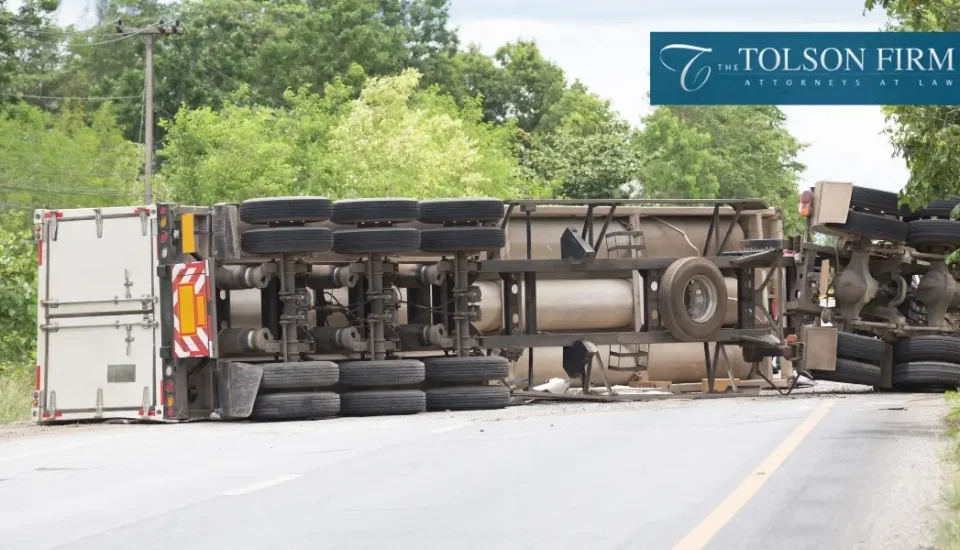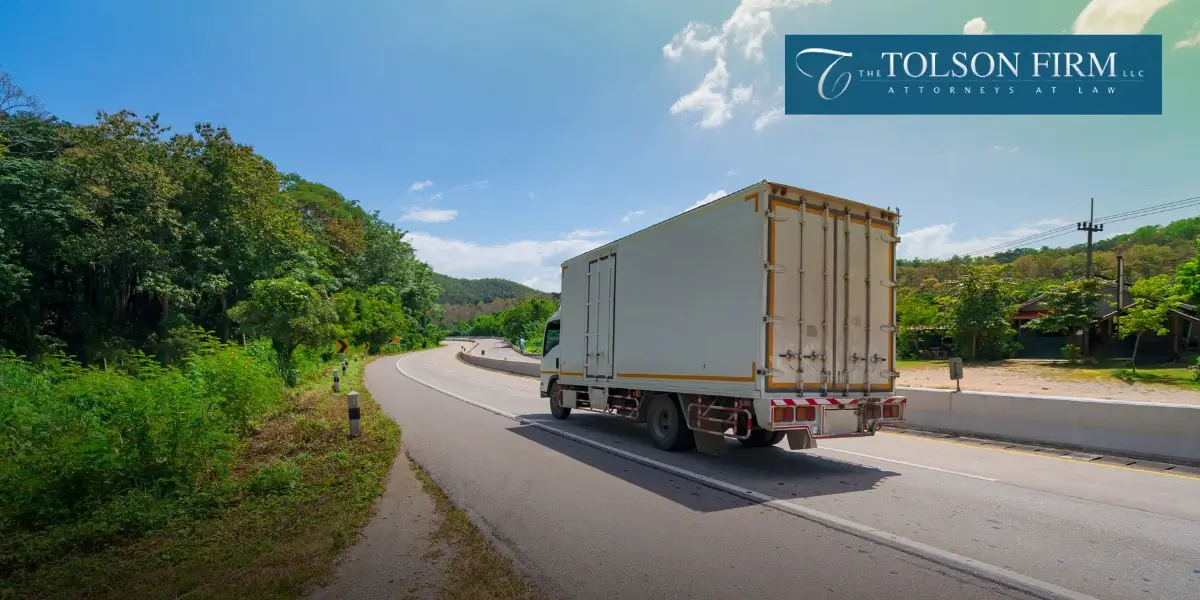Georgia Truck Accident Statistics [2025 Updated]

Truck accidents remain one of the most dangerous vehicle collisions on Georgia’s roadways. Major freight corridors like I-75, I-285, and I-16 cut through the state, offering opportunities for negligent commercial truck drivers to cause catastrophic collisions. Every year, thousands of crashes involving large trucks cause serious injuries and fatalities. These incidents are not rare, and Georgia truck accident statistics prove it.
Georgia Truck Accident Statistics: A Closer Look
Truck accidents remain a serious concern across Georgia, especially on heavily traveled routes like I-75 near Macon, I-285 around Atlanta, I-95 in coastal counties, and I-16 connecting Savannah to the heart of the state. In 2022 alone, Georgia reported 1,797 total traffic fatalities, reflecting the ongoing danger on state roadways. Large trucks were a major factor in these deaths.
While rural roads may seem quieter, they are no safer. In 2021, 18% of all fatal crashes in rural Georgia counties involved a large truck. This percentage is alarming, given that only 21% of Georgia’s population lives in rural areas, yet these counties were responsible for 34% of the state’s traffic deaths.

Risk Factors Behind Fatal Truck Collisions
Many factors contribute to truck-related fatalities in Georgia, including long driver hours, poorly maintained vehicles, and inexperienced operators. One key concern is the age of commercial drivers.
Statistics show that CMV drivers between 19 and 20 years old are six times more likely to be involved in a fatal crash than older drivers. This raises safety concerns, especially in fast-moving areas like the I-20 corridor through Augusta or near the Port of Savannah, where freight traffic is constant.
The danger of truck crashes extends beyond just those on the road. In 2023, transportation incidents were the leading cause of fatal workplace injuries in Georgia, making up 36% of all workplace fatalities. The risks remain high whether someone is behind the wheel or simply working around commercial vehicles.
National numbers further illustrate the severity, as thousands of people are killed and even more are injured in large truck crashes across the United States.
Tips for Staying Safe on the Road
Sharing the road with large trucks requires extra caution, especially on Georgia highways like I-285, I-75, and I-20, where commercial traffic is heavy. To reduce your risk of a serious crash, give trucks ample space and avoid driving in their blind spots.
Stay alert and avoid distractions such as texting or adjusting your GPS while driving. Use turn signals early and brake gradually to give truck drivers time to react. If you need to pass a truck, do so quickly and on the left side, where visibility is better. Never cut in front of a truck too closely.
Remember that trucks require considerable lengths of road to slow down and come to a complete stop. If the weather is a factor, assume that a truck requires even more space to come to a stop. In general, staying in the far right lane and driving just below the speed limit is an ideal way to prevent collisions with semi-trucks.
Driving defensively and respecting the size and limitations of large vehicles can help prevent accidents and keep Georgia roads safer for everyone. Even small decisions can make a big difference in avoiding a life-changing collision.
![Georgia Truck Accident Statistics [2025 Updated] Georgia Truck Accident Statistics [2025 Updated]](https://www.tolsonfirm.com/wp-content/uploads/2025/03/georgia-truck-accident-statistics.webp)
FAQs About Truck Accident Law in Georgia
How Serious Are Truck Accidents in Georgia?
Truck accidents in Georgia can be very serious and often lead to life-changing consequences for everyone involved. The sheer size of commercial vehicles makes collisions especially dangerous for occupants of smaller cars. Victims may face long-term injuries, lost income, and extensive medical costs. Because of these risks, truck accidents tend to be more severe than standard crashes and often require a closer look at what caused the collision.
What Factors Commonly Lead to Truck Accidents?
Factors that commonly lead to truck accidents include driver fatigue, speeding, and poor vehicle maintenance. In some cases, overloaded cargo or equipment failures also contribute. Weather and traffic conditions can make matters worse. These accidents usually result from a mix of issues, which is why investigating the full context is key to understanding what happened and determining who may be at fault.
Are Commercial Truck Drivers Always at Fault in Accidents?
Commercial truck drivers are not always at fault in accidents. While truck driver errors can play a role, other drivers, poor road conditions, or mechanical failures can also be to blame. Each accident must be reviewed carefully to identify all contributing factors. Responsibility can fall on the truck driver, the trucking company, or even third parties who performed repairs or loaded the truck improperly. These cases are rarely straightforward.
Why Are Truck Accidents More Complicated Than Other Crashes?
Truck accidents are more complicated than other crashes because they often involve multiple parties, including drivers, freight companies, and insurers. They also fall under both state and federal transportation regulations, which adds another layer of complexity. Investigating these collisions usually requires reviewing driver logs, maintenance records, and more. This makes resolving truck accident cases more time-consuming than the average crash involving passenger vehicles or private drivers.
What Makes Georgia a High-Risk State for Truck Accidents?
Georgia’s location as a transportation hub, especially around Atlanta, makes it a high-risk state for truck accidents. With major interstates crisscrossing the state, the chances of serious truck accidents increase. Heavy congestion, driver fatigue, and tight delivery schedules all add to the risk. This combination of factors makes Georgia a state where commercial vehicle crashes are a frequent concern.
Schedule Your Truck Accident Consultation Today
If you or a loved one was injured in a truck accident, taking quick action can protect your rights and strengthen your case. These crashes often involve large companies and aggressive insurance carriers, making it critical to have experienced legal support.
At The Tolson Firm, LLC, our Black-owned firm understands the challenges victims face and is ready to help you pursue the compensation you deserve. We can review the details of your case and explain your legal options clearly and honestly. Schedule your consultation today to take the first step toward holding the responsible parties accountable.
Contact an Georgia Truck Accident as soon as possible after the injury to avoid letting the statute of limitations prevent you from recovering compensation.

